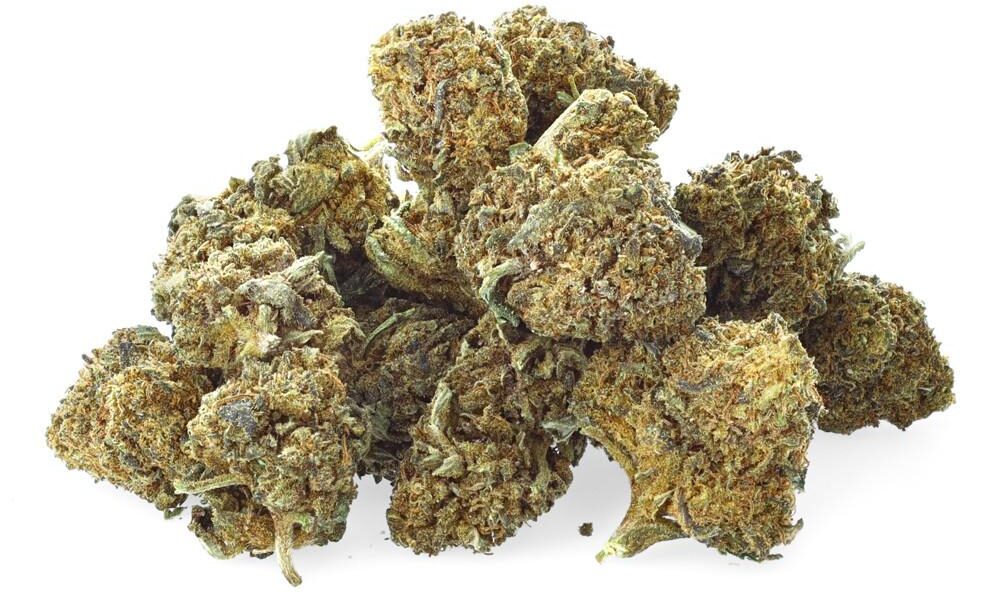Is Weed Bad? Unpacking the Green Enigma
In the vibrant tapestry of modern society, cannabis has woven its way into the fabric of both culture and conversation, shifting from a shadowy figure in the world of pop culture to a prominent player in medicine, recreation, and social discourse. Questions surrounding the plant’s safety, efficacy, and impact on our lives permeate discussions among policymakers, health professionals, and everyday users alike. But the heart of the matter remains: is weed bad? The answer is far from straightforward. With an array of opinions, scientific studies, and personal anecdotes, the debate invites us to explore the duality of this age-old herb. In this article, we will delve into the complexities of cannabis, examining its benefits, risks, and the shifting perceptions that continue to shape our understanding of this intriguing substance. As we navigate through the murky waters of myth and fact, let’s illuminate the conversation and discover where the truth lies.
Table of Contents
- Exploring the Science Behind Cannabis: Benefits and Risks
- Potential Impact of Cannabis on Mental Health
- Legalization and Its Consequences: A Community Perspective
- Responsible Use Guidelines for Cannabis Consumers
- Q&A
- Concluding Remarks
Exploring the Science Behind Cannabis: Benefits and Risks
Cannabis has garnered significant attention in recent years, leading to a growing body of research investigating its effects on human health. Understanding the benefits of cannabis is crucial, as it presents an opportunity for innovative therapeutic uses. Some of the documented advantages include:
- Pain Relief: Cannabis has been shown effective in alleviating chronic pain conditions.
- Anti-inflammatory Properties: Cannabinoids may reduce inflammation, benefiting those with autoimmune disorders.
- Neuroprotective Effects: Research suggests potential in treating neurodegenerative diseases such as Alzheimer’s.
- Mood Regulation: Some users report reduced anxiety and improved mood, possibly aiding in mental health treatment.
However, these potential benefits come with inherent risks that cannot be overlooked. The scientific community continues to explore the nuanced relationship between cannabis use and mental health, revealing concerns that include:
- Dependency: Regular use can lead to psychological dependency or addiction.
- Cognitive Impairment: Long-term use may impair memory and cognitive function, particularly in adolescents.
- Respiratory Issues: Smoking cannabis can lead to respiratory problems, similar to those caused by tobacco.
- Uncertain Dosing: The lack of standard dosing makes it challenging to predict effects and manage consumption safely.
| Benefits | Risks |
|---|---|
| Pain Relief | Dependency |
| Anti-inflammatory | Cognitive Impairment |
| Neuroprotective | Respiratory Issues |
| Mood Regulation | Uncertain Dosing |
Potential Impact of Cannabis on Mental Health
The relationship between cannabis and mental health is complex and multifaceted, influencing each individual differently depending on a variety of factors. While some individuals report beneficial effects such as relief from anxiety and depression, others may experience adverse reactions. The presence of THC (tetrahydrocannabinol) in cannabis can lead to heightened anxiety or panic attacks in some users, and these effects can be exacerbated by pre-existing mental health conditions. It is essential to consider personal history and predispositions when evaluating cannabis use.
Recent studies have indicated that regular consumption of cannabis, particularly high-THC strains, may correlate with an increased risk of developing certain mental health disorders, including psychosis and schizophrenia in susceptible populations. On the flip side, some patients suffering from chronic mental illnesses report that cannabis offers temporary relief from their symptoms. To better understand this duality, individuals are encouraged to consider a few key aspects:
- Dosage: Higher doses of THC may lead to adverse effects.
- Strain Variability: Different strains can have varying effects on mood and anxiety.
- Timeliness: Contextual use during heightened emotional states may trigger negative experiences.
| Understanding Effects | Potential Positive Effects | Potential Negative Effects |
|---|---|---|
| Stress Relief | Reduces symptoms of anxiety in some users | Increased anxiety or paranoia |
| Sleep Aid | Assists with insomnia | Disrupted sleep patterns in others |
| Social Interaction | Enhances social experiences for some | Can lead to social withdrawal or discomfort |
Legalization and Its Consequences: A Community Perspective
As communities grapple with the implications of cannabis legalization, the conversation often turns to its impact on public health, safety, and social dynamics. From reducing the stigma associated with use to increasing access for medical patients, the consequences can be both beneficial and challenging. Key aspects to consider include:
- Health Access: Legalization can improve medical access for patients suffering from conditions like chronic pain, anxiety, and epilepsy.
- Regulation and Control: Legal markets can monitor quality and safety, potentially reducing the risks associated with unregulated substances.
- Criminal Justice Reform: Legalization often leads to fewer arrests for cannabis-related offenses, which can help address systemic inequalities.
On the flip side, communities may face challenges such as increased usage rates among young people or potential public health concerns stemming from widespread consumption. Stakeholders must engage in continuous dialogue, assessing how to mitigate negative outcomes while promoting positive community benefits. Considerations for local governance include:
| Consideration | Impact |
|---|---|
| Education Programs | Informed users making better choices. |
| Tax Revenue Allocation | Investment in community services and infrastructure. |
| Public Health Initiatives | Addressing potential rise in substance use disorders. |
Responsible Use Guidelines for Cannabis Consumers
To enjoy cannabis responsibly, it’s crucial for consumers to understand their personal limits and the potential effects of marijuana on both body and mind. Here are some key considerations:
- Start small: If you’re new to cannabis, begin with a low dose and gradually increase until you find what works best for you.
- Know your strain: Different cannabis strains provide varying effects. Research and select strains that meet your desired outcomes, be it relaxation or creativity.
- Stay aware: Always be mindful of your surroundings and who you are with when consuming cannabis, especially in public settings.
Understanding the legal implications and health effects is essential for a well-rounded approach. Here’s a quick comparison of important factors:
| Factor | Positive Aspects | Negative Aspects |
|---|---|---|
| Mental Health | Can relieve anxiety and stress in some users. | May exacerbate anxiety or trigger paranoia in others. |
| Legal Status | Regulated use can lead to safer consumption. | Illegal use can result in legal repercussions. |
| Social Impact | Can enhance social experiences if consumed responsibly. | May lead to social stigma or isolation for some users. |
Q&A
Q&A: Is Weed Bad?
Q1: Is marijuana harmful to your health?
A: The health effects of marijuana can be quite complex. For some individuals, particularly those with certain pre-existing mental health conditions, marijuana use may exacerbate symptoms or lead to dependence. Conversely, some studies have suggested potential therapeutic benefits, such as pain relief and reduced anxiety. Thus, its “harmfulness” can depend heavily on individual circumstances, usage patterns, and overall health.
Q2: Can smoking weed affect your lungs?
A: Much like smoking tobacco, inhaling marijuana smoke can have implications for lung health. Regular marijuana smoking may lead to bronchitis-like symptoms, such as a chronic cough and phlegm production. However, the extent of harm is still debated, and some research suggests that occasional use may not have significant long-term effects on lung function.
Q3: What about the mental health effects of weed?
A: The relationship between marijuana and mental health is intricate. While some individuals report reduced anxiety and stress with cannabis use, others might experience heightened anxiety, paranoia, or even symptoms of psychosis, especially with high-THC strains. The impact often varies by individual and can be influenced by genetic factors, underlying mental health conditions, and personal history with the drug.
Q4: Does marijuana lead to addiction?
A: Yes, marijuana can lead to dependence and addiction in some users, particularly among those who start using it at a young age or use it frequently. Research indicates that approximately 9% of users may develop a dependence, which can rise to about 17% for daily users. It’s essential to understand your relationship with cannabis and seek help if you feel it’s becoming problematic.
Q5: How does weed affect motivation?
A: The notion that marijuana diminishes motivation, often termed “amotivational syndrome,” is contested among researchers. Some users report feeling less driven after regular use, while others maintain or even enhance their motivation in certain contexts when using cannabis. It largely depends on individual factors, the strain used, and the context of use.
Q6: Are there any benefits to using weed?
A: Absolutely! Many people find benefits in medical marijuana, which has been shown to help alleviate chronic pain, stimulate appetite in patients undergoing treatments like chemotherapy, and manage conditions such as epilepsy and multiple sclerosis. Additionally, recreational users may find enjoyment, relaxation, and social enhancement from moderate consumption.
Q7: What about legal regulations surrounding weed?
A: Legal statuses of marijuana vary widely around the globe and even within regions of the same country. While some places have fully legalized recreational and medical use, others maintain strict prohibitions. These legal frameworks can influence both the safety and availability of cannabis and often shape public perception regarding its use.
Q8: So, is weed bad?
A: The answer isn’t a simple yes or no; it truly depends on multiple factors, including individual health, frequency of use, the method of consumption, and the context in which it is used. Moderation, informed choices, and understanding personal limits are vital components in navigating marijuana use responsibly.
Concluding Remarks
the question of whether weed is “bad” invites us to explore a complex interplay of science, culture, and personal experience. As we sift through various studies and personal narratives, it becomes clear that the effects of cannabis are not universally black or white. Instead, they exist in a spectrum tinged with both promise and peril.
Those seeking to unravel the truth about cannabis should consider not just the potential risks, but also the possible benefits it offers, whether for medicinal purposes, recreational enjoyment, or social connection. Understanding the nuances of weed ultimately lies in acknowledging that each individual’s relationship with it is shaped by a myriad of factors, including biology, context, and societal attitudes.
As we move forward, it is crucial to remain open to ongoing research and dialogue, allowing for an informed approach that considers both perspectives. So, before you place judgment on weed, remember that beneath the surface lies a layered narrative, waiting to be understood. Whether you view it as a vice or a virtue, one thing is certain: the conversation surrounding cannabis is far from over.



